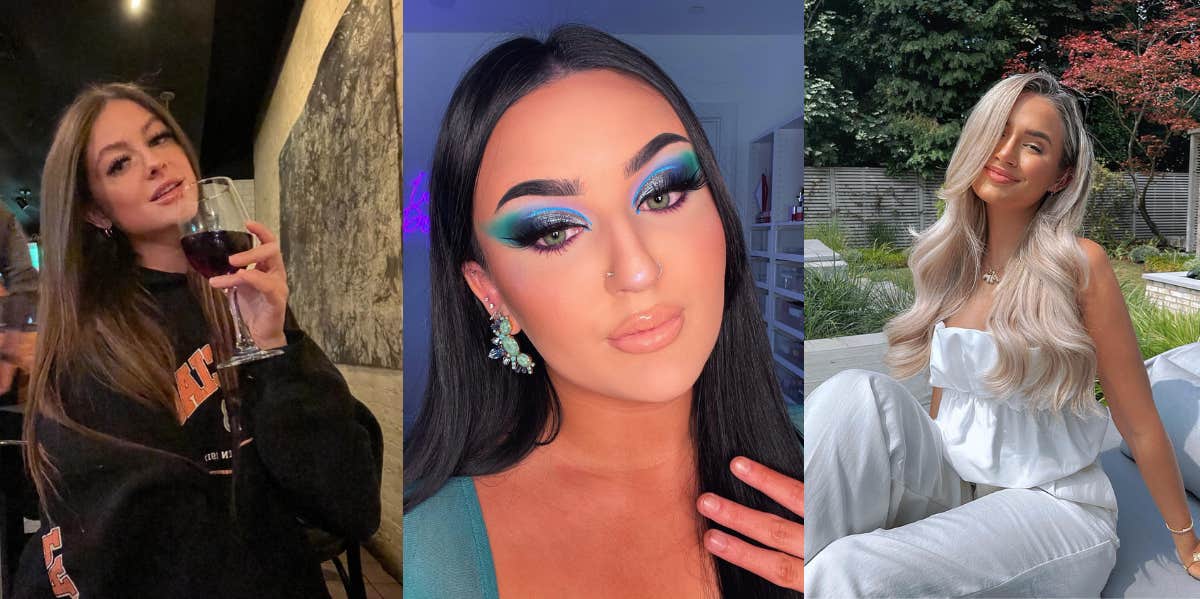We're All Facing Burnout & Job Instability — So Why Don't We Let Influencers Complain About Their Work?
What does it mean to work hard?
 Instagram
Instagram Burnout, job insecurity, stagnant wages – it’s the new world of fear that we all seem to face.
With one-third of Americans making less than $15 an hour, and unemployment and poverty on the rise, resentment for wealthy and influential workers has grown to an all-time high.
Speaking of influence — while many of us scramble to make money in corporate jobs, the rise of online creators has cultivated an industry of so-called influencers forging a new path.
So, who are these influencers?
We see the image of ‘The Influencer’ — hopping around countries on a jet, lounging on an all-expenses-paid trip, and posting haul videos with thousands of dollars worth of PR packages.
With thousands hardly scraping by with full-time jobs, this image of ‘The Influencer’ is a widely resented one. Seeing this image of the influencer, it can be difficult to empathize when we’re struggling on our own.
With that said, we all complain about our work at some point or another.
We all work hard in our jobs and balance a million things at once in our busy lives – so, why don’t we let influencers do the same?
Why don’t we let influencers complain about their work?
Beauty influencer Mikalya Nogueira had a modest start on TikTok in 2020, but quickly drew a diehard audience of over 15 million followers in just a few months.
Not only was she doing realistic makeup reviews, sharing her dating life, and opening up about her struggles with her weight — her quirky and fun personality closed the gap between fans' lives and her own.
Nogueira was quick to lose her “down-to-earth” title after fans criticized her for clapping back at a comment assuming she’d never last in a typical 9-5 job.
RELATED: 10 Behind-The-Scenes Social Media Secrets Of An Instagram Influencer
“Every single day, I get up at 6 AM. I spend about 5-6 hours filming video content that ranges from 3-4 videos and then I spend a few hours editing that content,” Nogueira says, “Then I have to work on my other social media profiles, whatever it may be.”
“Try being an influencer for a day, try it. Because the people who say it’s easy are so far out of their minds.”
As probed in a recent DailyDot article, responses to Nogueira’s outbursts were strongly negative — comments blasted the makeup guru for complaining while racking in some people's annual salary with just one single brand deal.
Influencer Tara Lynn faced a similar backlash when she referenced Kim Kardashian’s infamous quote, “Just get your f—king a— up and work.”
Angry with Lynn’s ignorant comments, @erica.caroline.posted a TikTok saying, “It bothers me…that you have so much to say about other people working when you have no idea what working is really like. You are in another world where ‘money ain’t no thing.’”
“For people like me, we struggle every day,” she continued, “what the f—k do you have? You make content, have brand deals, have all your friends — you’re disgusting and that was disgusting.”
Broadly, influencers’ payouts hardly align with the payouts of those working traditional 9-5 jobs.
While Nogueira and other influencers undoubtedly work hard at their respective jobs, the benefits of an online platform and the privilege of fame far outshine the burdens of typical working Americans.
Creator Tayler Limas shared her perspective on Nogueira’s comments, saying, “an influencer’s hours from 9-5 do not equal the same amount of payout and energy spent as somebody working a regular 9-5.”
“Is influencing still a job?” Limas continues, “Yes it is. Can it still have difficulty? Yes. But an influencer can post a minute video and make $5,000.”
After being called ‘entitled’ by users online, Love Island personality and social media influencer Molly-Mae Hague faced a similar backlash when she responded with, “We all have the same 24 hours in the day” in an exclusive interview.
RELATED: The Kardashians Are Hiring — 5 Job Postings That Reveal The Reality Of Working For Their Team
It’s a misguided and ignorant claim — with a vast realm of resources, connections, and privileges, Hague has infinitely more opportunities than a typical marginalized American worker. It’s perspectives like these that perpetuate a cycle of resentment towards social media figures and influencers as a whole.
TikToker Amna K, or @tbhlmfaoo, agrees to say, “Somebody who has a physical disability…or someone who is mentally incapable does not have the same 24 hours as an able-bodied influencer. A single parent working multiple jobs to make ends meet does not have the same 24 hours as a privileged, financially stable influencer.”
Some influencers openly acknowledge the privileges of their occupations.
While some might have a misguided idea of unfairness, other influencers seem to be relatively open in talking about their privileges.
Influencer and model, Ella Halikas uses her TikTok platform to spread body-positive content with an honest discussion about her privileges.
Ultimately, the discussion ends with a seemingly simple question — Why do we force silence on people with privilege and money? Why don’t we let them speak of struggle and frustrations?
Is the forced silence ignorance? Or bliss? Is resentment further separating the resented and the resentful — the rich and the poor, the influencer and the 9-5er?
‘Someone has it worse than you’ — it’s the one-liner that dominates this conversation. It’s a double-edged sword — use your platform wisely, acknowledge your privilege, and check up on yourself and others.
Zayda Slabbekoorn is a news and entertainment writer at YourTango. They cover topics ranging from pop culture analysis to human interest stories. They are currently based in East Lansing, MI. Catch up with them on their Instagram or TikTok.
